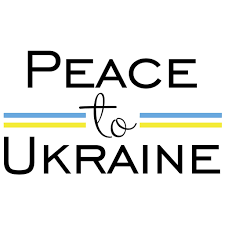PREAMBLE
A century after Mackinder’s LSE presentation on The
Geographical Pivot of History, and the United States having achieved its “colossal Imperium … on an unprecedented scale” by controlling the strategic axial points at both ends of Eurasia as anchors for an arc of military bases around the world, (see also: military bases in hegemonic hubris), Washington is enjoying superior geopolitical position to wage the New Cold War against China and the Soviet Union (John Bellamy Foster, “The New Geopolitics of Empire,” Monthly Review 57, no. 8 [January 2006]; see also The Geopolitical Imperialism Dimensions in New Left Malaysia, Journal 18, 12th January 2022).
However, the Ukraine pivot strategy is flawed because the war cannot be won as the Russian army has asymmetrical dominance, (RAND 2017; and the war Ukraine SitRep, September 2023; antiwar 2023 is deteriorating).
Only Russian-US talks can put an end to the conflict because Russia wants security guarantees that only Washington can give (see National Security Archive, 4th October 2023 suite of released documents; Abdul Rahman, Minsk Agreement) whilst Hungarian Foreign Minister Peter Szijjarto in an interview with the Washington Times in 2022 had called for immediate talks because “all wars end up in negotiations”.
The contrast between the America’s stupor and Russia’s creativity on the diplomatic front could not be any much distinctive. The Biden administration promised a foreign policy in the interests of plutocractic America’s ruling class, but floundered and collapsed under the pillars of her own liberal regime, (Adam Tooze, Why Biden Failed and The Dysfunctional Superpower, Robert Gates, Foreign Affairs 29 September 2023).
Meanwhile, China has interests in bringing the Ukrainian conflict to an end by presenting itself on the world stage as a peace broker, a mitigator of the wider global fall-out of the war and a post-conflict reconstructor.
China’s Position Paper on Ukraine sets out in twelve points China’s position vis-à-vis what is described as a “question, problem” (问题).
It starts by reiterating one of the pillars of Chinese foreign policy, the need to respect the sovereignty, independence and territorial integrity of all countries, an unobjectionable principle rooted in the “democratisation of international relations”. At the same time, China emphasises the need for “an identical and uniform application of international law” and the rejection of the use of double standards, an indirect critique of the US and a former colonialist who detest truthfulness and sincerity [ Carnegie Endowment, March 2023, Inside China’s Peace Plan for Ukraine and House of Commons, May 2023, Ukraine: China’s pathway to peace? ].
The second point draws from the principle of indivisible security. It urges all parties to “help forge a balanced, effective and sustainable European security architecture” and abandon “the Cold War mentality” that relies on the expansion of military blocs as expounded by csis’23. Implicitly, China castigates the United States and the NATO alliance for provoking – and intensifying – the war, (READ Caitlin Johnstone; Karaganov; Chas Freeman; Seymour Hersh; VIEW Meirsheirmer; Ritter).
China’s positional role in global peace and security is underlined by the following released documents: The Global Security Initiative concept paper, China’s Position on the Political Settlement of the Ukraine Crisis and a report on US Hegemony and its Perils.
Often it has been argured that the Ukraine conflict could have been prevented, had the West accepted a neutral status for Ukraine – which Zelensky was initially quite willing to do – renounced NATO membership and enforced the Minsk II agreement on minority rights for the Russian-speaking population. Indeed, the war could have ended in early April 2022 if the West had allowed the Istanbul negotiations to be concluded.
As it is, there is, once again, a possibly for the last pane of time, the responsibility of the “collective West” - especially the USA - to set a course towards a ceasefire and peace negotiations whereupon the Ukraine conflict should not be viewed therefore as a forever war, (The Hill, 9th. October 2023).
The main text to Jeffrey Sachs’ paper:
Beyond the neocon debacle to peace in Ukraine
follows - which is accessible HERE.
Related Ukraine Readings in csloh.substack:
China's "strategic neutrality" on Ukraine ; China-Russia relationship since Ukraine ; Europe's China-dependence ; The European Triad ; European 'strategic autonomy' ; China's straddle on Ukraine.



